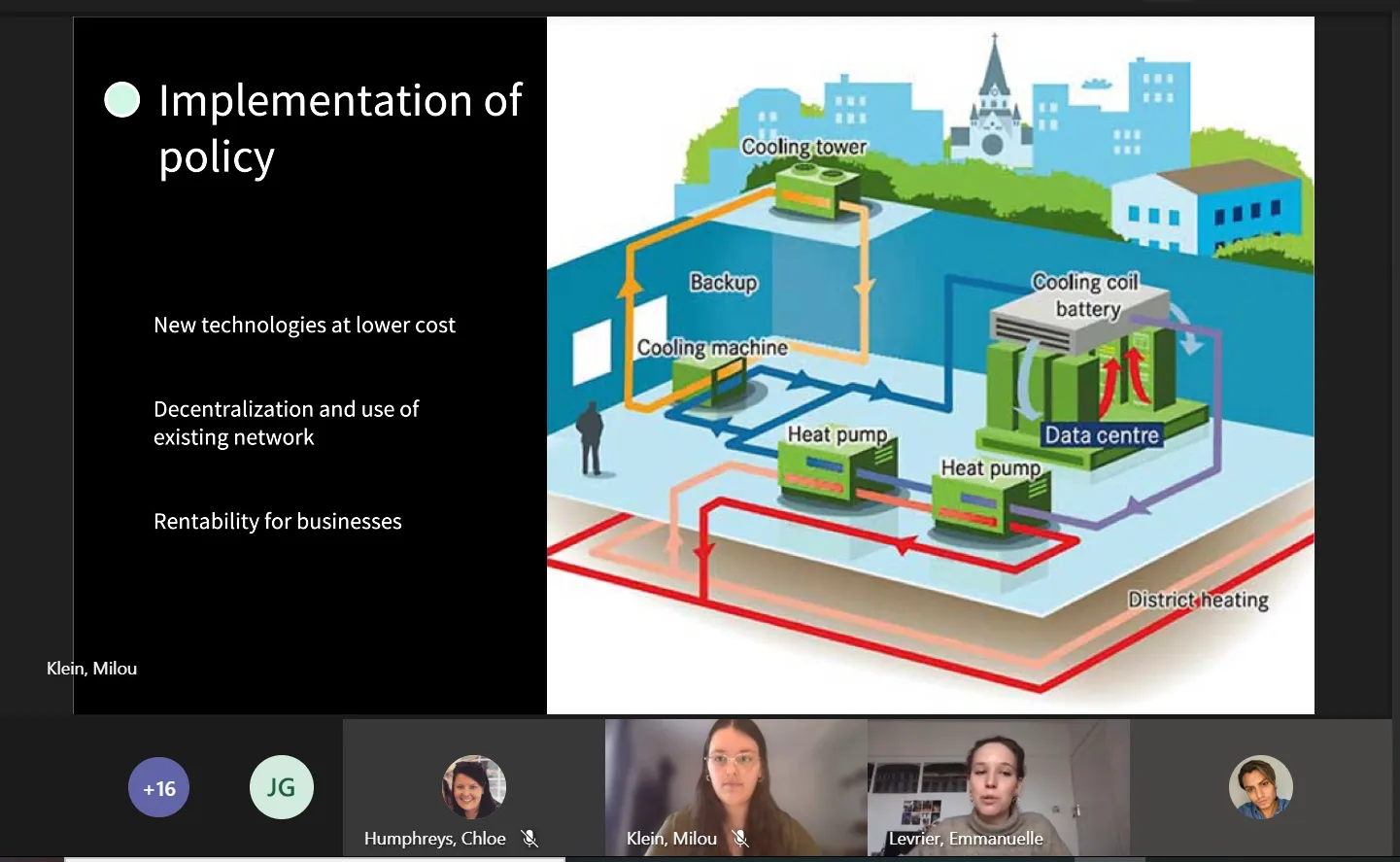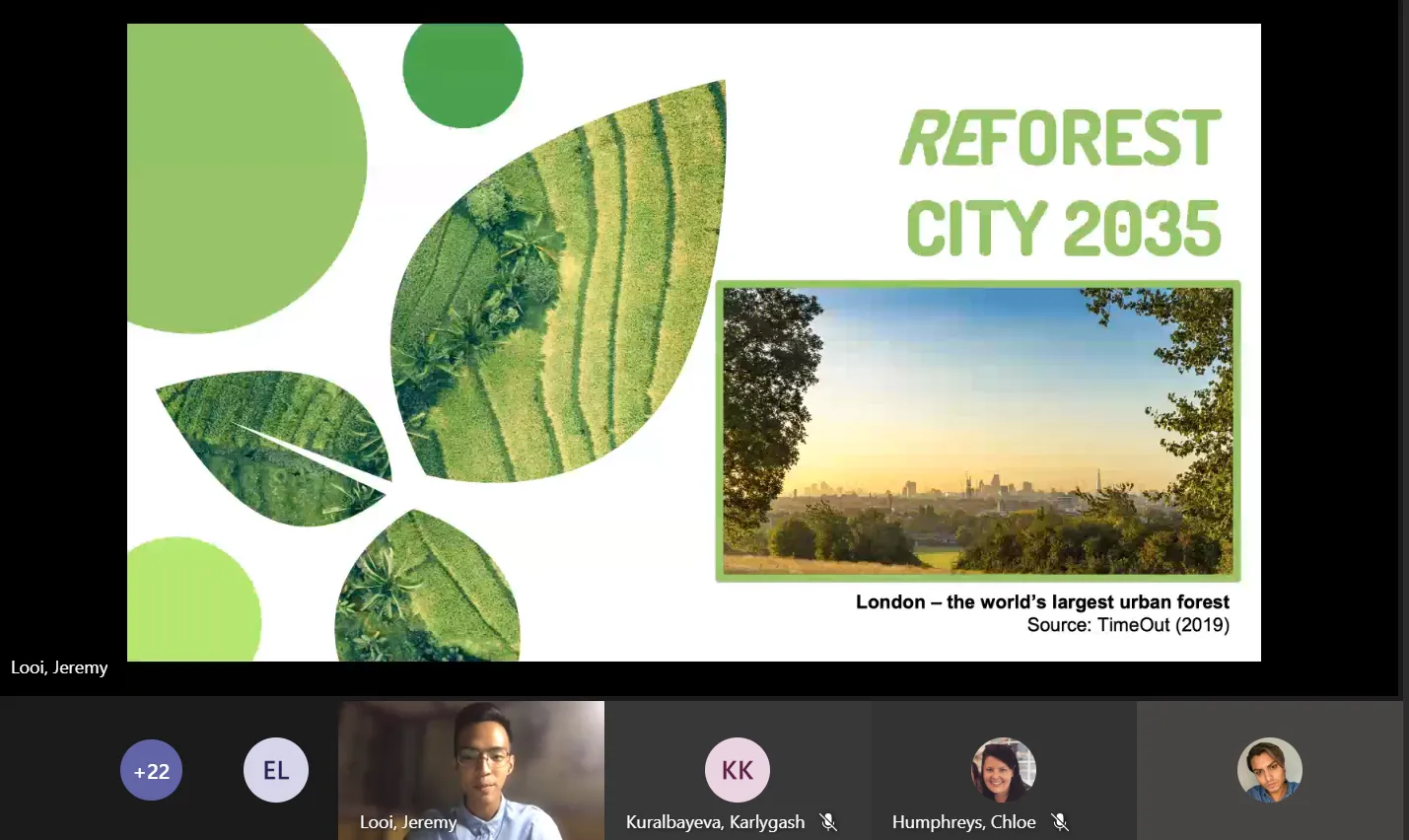11 March 2021
Competition winners show their policy is more than just hot air!
Cutting carbon emissions by reusing waste heat from supermarkets in local homes was judged the best new policy idea at a competition hosted by the School of Politics and Economics.

Milou Klein and Emmanuelle Levrier’s policy pitch – entitled Wasted Opportunities: Recycling heat waste - championed the idea of taking waste heat from data centres and supermarkets and making it available to homes in the locality, thereby preventing it going to waste.
As well as reducing carbon emissions, the policy could also help reduce heat poverty in lower-income areas, the pair, who are second-year politics students, argued.
In a close-run contest, the judges picked Milou and Emmanuelle’s pitch because of its feasibility as a policy. The team was awarded the £350 first prize.

The judging panel included academics Francesca Vantaggiato, Karly Kuralbayeva and Tomas Maltby, along with the members of last year’s winning policy pitch, students Marcia Holst, Jasper Doeninghaus and Leonardo Vizioli.
The judges said: “Our top two both had good presentations and we thought both were good ideas which could make a big impact. In terms of feasibility, though, we believe that Milou and Emmanuelle came out on top.”
In second place were final-year PPE students Stefano Santori, Franca Beckmann, and Mina Aries with their pitch, Fuel Tax-back. The team proposed a scheme whereby a tax levied on fuel duty could be reclaimed via an app, with the amount able to be reclaimed varying depending on income. Those earning under £12,500, for example, would be able to reclaim 100 per cent of the tax, while those earning more than £50,000 would be unable to claim anything back.
The policy, the trio argued, would encourage people to think again about how they were choosing to travel and would hopefully reduce carbon emissions among the biggest polluting groups, without penalising people on lower incomes. Money raised through the policy would be used to fund carbon-reducing initiatives. They were awarded the £150 second prize.

Jeremy Looi, a second-year political economy student, pitched the idea Reforest City 2035. As part of his idea, businesses in major cities would be encouraged to plant trees and the space made available by the reduced need for office space post-pandemic would also be utilised for more planting. Doing so would both reduce carbon in the atmosphere and improve air quality in cities like London.

Sahil Sonalkar, a first-year PPE student, proposed the policy PILEB, which would empower consumers to make more informed choices about their lives by providing information on their carbon choices. Focussing on food, travel, and energy, Sahil proposed a system of scoring so that consumers could compare across providers and products and make conscious decisions about how to change their habits in order to reduce their carbon footprint.
Final-year European politics student, Jean-Aymeric Gasc argued that the UK Emissions Trading Scheme (ETS) needed a higher and more uniform carbon price and should recognise voluntary carbon credits.
Jean, said that the current ETS price, about £15 per tonne, would be insufficient to help it meet its 2050 carbon zero target and that, under the current scheme, only 30-40per cent of emissions were covered.
Final-year PPE student, Alexandra Damerau proposed a policy that would compel pension funds to be hedged against climate risk while ensuring that investment was also made into at least one climate-focused fund.
Alexandra said that the global annual investment in renewables needed to meet the Paris Agreement targets would need to double from about $300billion to more than $600bn annually. To help meet this shortfall, Alexandra’s policy would ensure capital was channelled into sectors that were meeting their environmental commitments and also working to reduce emissions.



